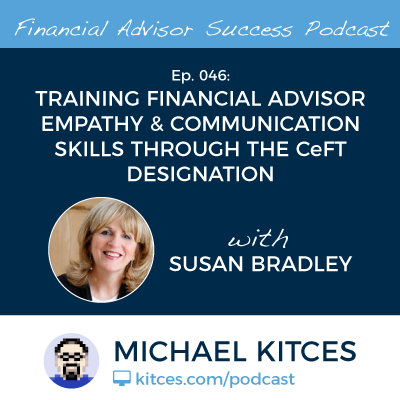Starting a new financial planning practice can be a scary yet exciting time. One of the big challenges facing any financial advisor is finding initial clients and building up a business that can financially support itself. As a result, in the beginning, many financial advisors will take anyone who is willing to work with them. Yet the reality is that while this can create some growth at the start, often this can actually impede growth in the future, as a business without any clear focus and target clientele can lead to significant problems with efficiency.
In this guest post, Meg Bartelt of Flow Financial Planning, LLC recounts the evolution of her virtual fee-only financial planning practice, from starting in May of 2016 with a focus on "working mothers in the tech industry" and growing into her current focus on “early to mid-career women who are employees in the tech industry”. Additionally, Meg notes the benefits of starting out with a niche, such as easier design of process and deliverables (as everything can be designed around a single clientele), easier referability (as clients actually know what's unique about you and who they should send to you), increased confidence (as working with a community of people you know a lot about can help you develop assurance in the value you provide to clients), more enjoyable client relationships (as working with people you know and like will make the work more enjoyable), and more effective professional development (as she can ignore many of the topics that a generalist must focus on, while specifically honing in on topics that are meaningful to her clients)!
Ultimately, every firm has their challenges in the early days and Meg's firm was no exception, but by focusing on a niche and marketing it aggressively – including sufficient investment in a quality online presence that resonated with her target clientele, efforts building SEO through her blog, networking through the right online communities, and leveraging centers of influence that many advisors traditionally don't focus on (e.g., resume writers, career coaches, and people who are "hubs" in the tech industry) – Meg was able to reach the tipping point at which her efforts paid off, and now she has an entirely virtual firm on pace to likely break $150k in revenue in just her third year of operation. And Meg has done all of that while bringing on 26 of 31 clients in her niche, and adopting a policy of only accepting clients in her niche going forward, as she has seen the efficiencies gained from growing a firm through niching from the start!






 Welcome, everyone! Welcome to the 66th episode of the Financial Advisor Success Podcast!
Welcome, everyone! Welcome to the 66th episode of the Financial Advisor Success Podcast!
 Welcome, everyone! Welcome to the 61st episode of the Financial Advisor Success Podcast!
Welcome, everyone! Welcome to the 61st episode of the Financial Advisor Success Podcast!


 Welcome everyone! Welcome to the 46th episode of the Financial Advisor Success Podcast!
Welcome everyone! Welcome to the 46th episode of the Financial Advisor Success Podcast!
